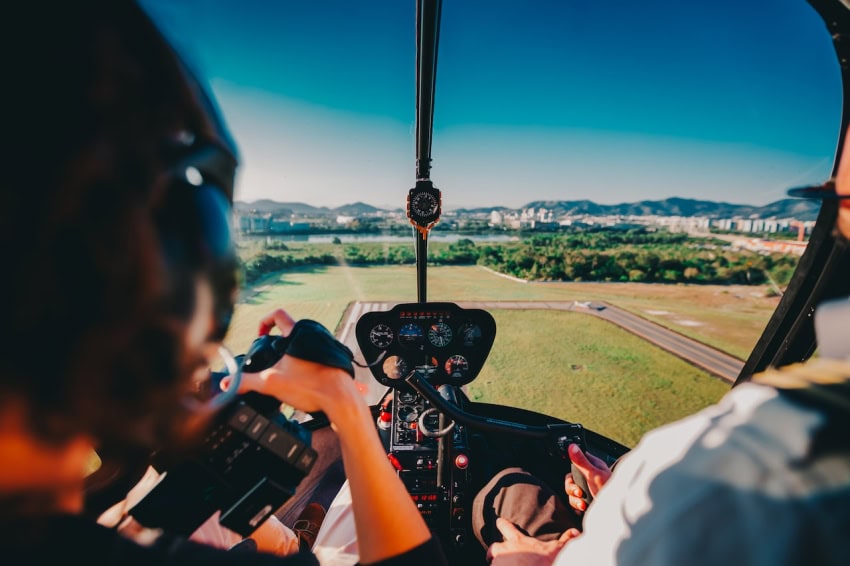RIYADH – Saudi Arabia has gone a mile more in its drive to enhance the quality of life and establish a sustainable transportation system by conducting test flights for air taxis successfully.
This is the first time an eVTOL (electric Vertical Take-Off and Landing) aircraft has received flight authorization and performed test flights in the kingdom, marking the culmination of 18 months of collaboration between NEOM, the General Authority of Civil Aviation, and Volocopter (aerospace company).
in a press release issued on Wednesday, it was stated that the goal is to implement and expand an electric urban air mobility ecosystem and testbed in NEOM.
Prior to the test flights, the parties collaborated closely to ensure compliance with regulations and prioritize safety.
Nadhmi Al-Nasr, CEO of NEOM, expressed his satisfaction on the launch, stating that the successful test flight of the Volocopter eVTOL demonstrates NEOM’s commitment to being a global accelerator and incubator for innovative solutions.
Meanwhile, Abdulaziz A. Al-Duailej, President of the General Authority of Civil Aviation (GACA), hailed the achievement as another significant step towards realizing the goals of the Kingdom’s aviation sector strategy. Al-Duailej also reaffirmed GACA’s commitment to facilitating the safe integration of innovative air transport systems that improve mobility and enhance the quality of life in Saudi Arabia’s urban areas.
Christian Bauer, Chief Commercial Officer of Volocopter, expressed his excitement over the tangible results of their 18 months of work.
The air taxi adventure began in 2021 when NEOM and Volocopter established a joint venture to scale up advanced air mobility, positioning NEOM as a collaborative global living lab for future transportation.
The air taxi test marks the beginning of a new transportation system that will rely on 100 percent renewable energy from solar and wind sources.
It has been stated officially that the eVTOL aircraft would serve as air taxis and emergency response vehicles as these aircraft are quieter, more adaptable, and less costly to operate. Another advantage of these vehicles over traditional bulky helicopters is the fact that they require smaller infrastructure on the ground, face fewer operational restrictions, and utilize smart and autonomous capabilities.
As far as future commercial operations are concerned, they are expected to begin in 2024 after the certifications.














